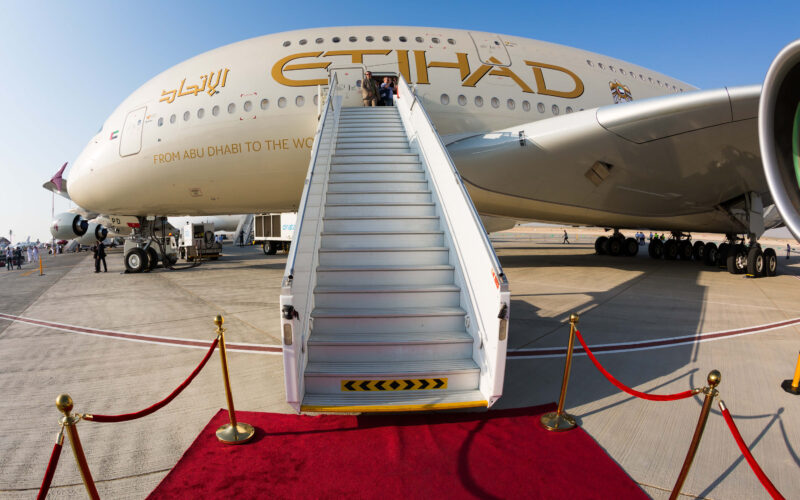In cooperation with UAE’s financial institution, Etihad Airways reportedly launched the Transition Sukuk as the Sustainability-Linked financing of $600 million, which would help the carrier to implement its plan and shift to more environmentally sustainable operations.
On October 28, 2020, Etihad Airways reportedly issued a $600 million Sukuk in cooperation with Abu Dhabi Islamic Bank, Dubai Islamic Bank, Emirates NBD Capital, First Abu Dhabi Bank, and Mashreqbank. The financing should help the airline to reach its goal to reduce carbon emissions level by half by 2035 as well as cut emissions completely to zero by 2050.
„By issuing a Sustainability-Linked Sukuk, Etihad is voluntarily adding to its existing commitments under CORSIA (Carbon Offsetting and Reduction Scheme for International Aviation), and also committing to reduce carbon emissions intensity by over 20 percent from the 2017 baseline,“ speaking to local media announced Adam Boukadida, the Chief Financial Officer of Etihad Aviation Group.
„Sustainability and responsible climate action are the most significant challenges facing the aviation industry. As the UAE’s flag carrier, Etihad is committed to sustainable development in aviation in line with Abu Dhabi’s vision,“ added Boukadida.
The $600 million Sukuk, also known as an Islamic bond, is a part of a $3 billion Sukuk program under which proceeds of the transition bonds would be used by Etihad to gradually switch to zero-emission operations. To reach the goal, the air carrier also plans to add and use more fuel-efficient aircraft as well as exclude the use of single-use plastics.
Earlier in January 2020, Etihad Aviation Group released a Sustainability Position Paper in which it presented the sustainability strategy and aligned to the 17 Sustainable Development Goals of the United Nations.
The main purpose of Etihad’s program is to „help to stem carbon dioxide emissions created by aircraft operations throughout the ‘life cycle’ of flight,“ as presented in a document released by Etihad Airways.
To fulfill the goal of environmentally sustainable operations, the program involves the preparation of each Etihad’s aircraft, including maintenance, cleaning, fuelling, loading, powering, and temperature-controlling on the ground.
It also consists of an optimal route and load planning, fuel optimization measures on the ground and in the air as well as focusing on more environmental-friendly arrival procedures such as pursuance of the most efficient approach and descent, taxiing to the terminal, powering the aircraft on the ground, unloading, cleaning, and waste disposal.
The $600 million Sukuk should help Etihad Airways to speed-up the development of the program.

